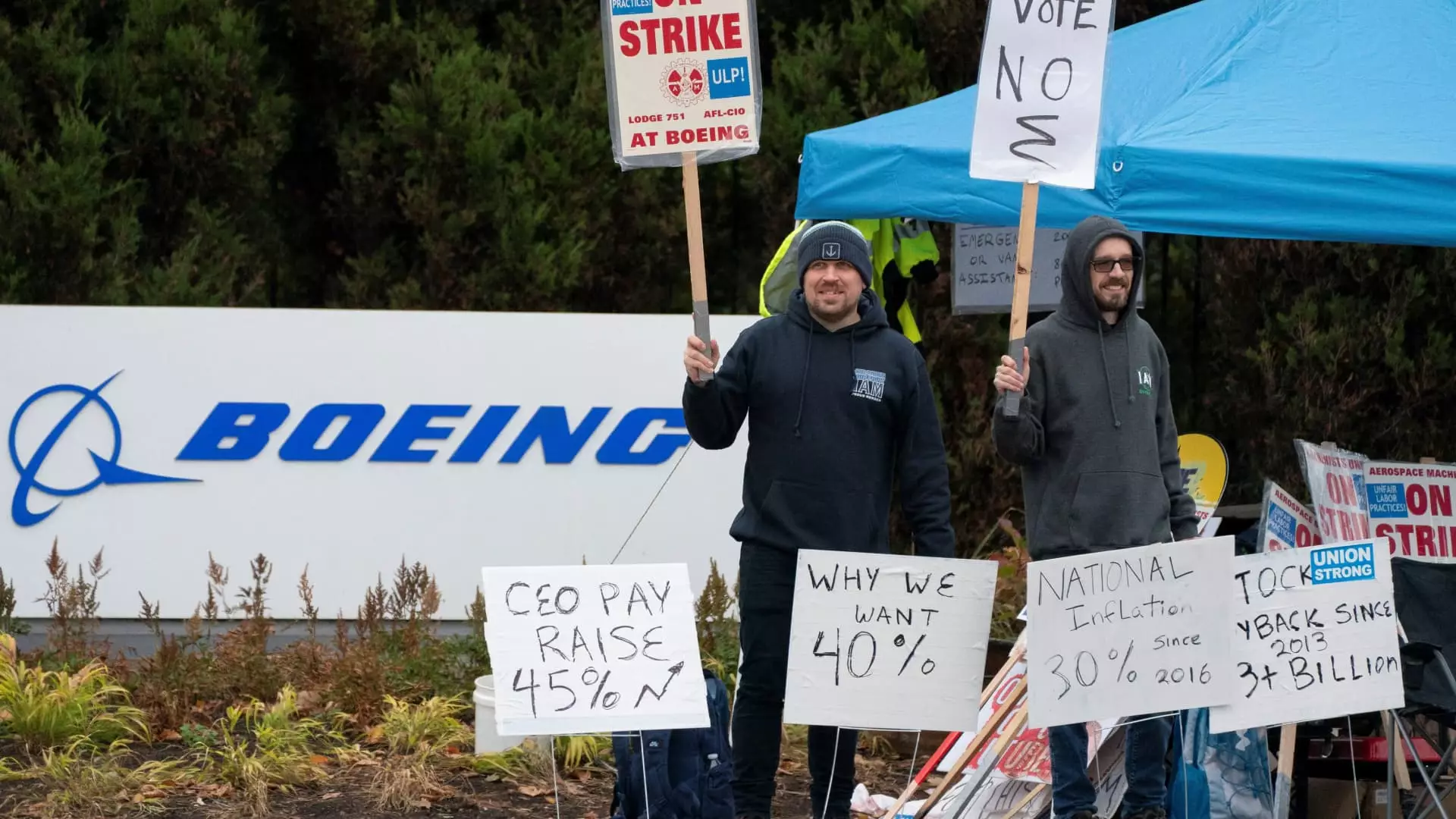After an extensive seven-week labor strike, Boeing and the International Association of Machinists and Aerospace Workers District 751 have reached a negotiated offer set to be voted on by union members. This pivotal moment comes after workers, numbering over 32,000, walked off the job on September 13, rejecting earlier proposals that aimed to resolve pay and working conditions. The strike has had a significant impact on Boeing’s operations, halting aircraft production and increasing urgency for a resolution due to mounting financial losses for the company.
The latest proposal represents a notable shift in the negotiation dynamics. The union has encouraged its members to consider the new offer, which includes a 38% wage increase over four years, an increase over the previously rejected 35%. Such increases compounded result in total pay raises nearing 44%, indicating a substantial concession from Boeing amidst a period of labor pushback.
Moreover, the proposal introduces a one-time ratification bonus option, allowing workers to choose between a $12,000 bonus or a combination of a $7,000 bonus alongside a $5,000 contribution to their 401(k) plan. The union’s leadership has stressed that prolonging the strike would not be advantageous, noting that they have already extracted significant gains from the negotiation process.
The International Association of Machinists has made it clear that the struggle for better pay is rooted in the high cost of living in the region where most workers are based. Cities like Seattle have seen a dramatic rise in living costs, prompting machinists to demand compensation that reflects economic realities. Furthermore, since Boeing’s move of 787 Dreamliner production to non-unionized plants in South Carolina, there has been increased animosity among union members. This decision is perceived as a betrayal, fostering sentiments of vulnerability among those employed at unionized facilities.
In light of such tensions, the union’s leadership recognizes that continuing the strike could potentially lead to less favorable terms. They have reached a consensus that they must prioritize current gains as a step towards securing stability for their workforce.
Boeing’s financial status has compelled leadership to engage seriously in negotiations, especially following a reported loss exceeding $6 billion in recent quarters with projections indicating more cash burn through the year 2025. CEO Kelly Ortberg has articulated a vision of unity, urging employees to return to work to refocus efforts on recovery and growth. He emphasizes that the stability of the company is intertwined with the well-being of its workforce.
The Biden administration has also stepped into the fray, signifying the strike’s national importance. Acting Labor Secretary Julie Su’s involvement highlights the broader implications of the labor dispute on U.S. economic health, notably in light of the impending presidential election. President Biden’s commendation of the new contract proposal reflects a recognition of labor’s rightful demands for fair treatment and compensation in an industry rife with challenges.
Even if the new proposal is approved, Boeing will face the Herculean task of rebuilding trust with its workforce while resuming operations at an optimal capacity. Past safety issues, such as production flaws and high-profile incidents involving Boeing’s aircraft, have cast a shadow over the company’s reputation.
With a historical legacy at stake and immediate financial pressures looming, the real test for Boeing lies not merely in the acceptance of a new contract but in its ability to deliver on promises relating to worker fulfillment and operational excellence. The negotiations offer a significant reset to the relationship between labor and management, suggesting that a delicate balance must be maintained moving forward.
The challenges Boeing faces extend beyond merely reaching contractual agreements. The entire aerospace manufacturing landscape is in flux, and both management and labor have a vested interest in fostering a cooperative environment capable of overcoming external pressures. As Boeing strives to regain its footing, the focus on worker satisfaction, captured through these negotiations, will be paramount to sustaining its future as an industry leader.

